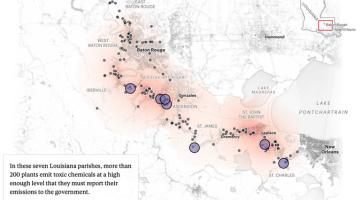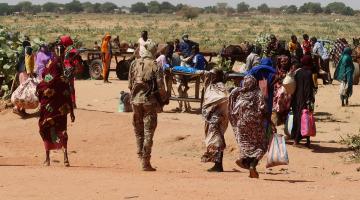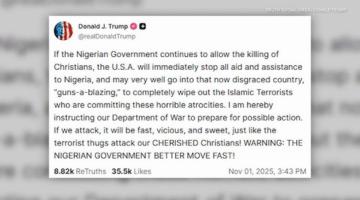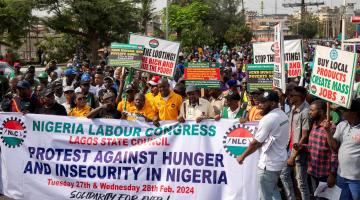The social media hashtag is often where serious politics goes to die. It can be a tool of empire used to fool well-meaning but uninformed people.
This article was originally published in Hood Communist.
The abundance of “hashtag activism” has created a false sense of importance for the everyday individual being driven by weaponized empathy to speak out about a cause or injustice happening internationally. This false sense of importance, brought on by the use of hashtags as awareness, is ignited by already held biases about the colonized world, which inevitably leads to both overt and covert calls for western intervention to “save” whoever has been deemed needing of saving.
The use of hashtag activism has certainly all but replaced in-person community organizing. It has allowed an array of people across the country and across the world to be united in solidarity for a cause that can be summarized in as small a character limit as possible. This “connection”, of course, is oftentimes heralded as one of the more positive things about social media.
However, in the last 10 years, just about every coup d’etat, attempted coup, and the expansion of US military commands like AFRICOM can be traced back to a hashtag. It may be as simple as #Libya during the height of the NATO orchestrated invasion efforts or as emotionally baiting as #SOSNicaragua, with intentions to oust the popular Sandinista government. Unfortunately, these past examples do not move the overwhelming majority of people who engage hashtags as a direct form of action to investigate, just act. There is typically no inquiry about the origins of the hashtag nor is there any inquiry about the intent or purpose of the hashtag. And certainly there’s been a severe lack of study regarding what happens post hashtag usage.
Past Examples
In 2014, the internet was set ablaze with pleas to “Bring Back Our Girls” from the “terrorist” organization, Boko Haram, wreaking havoc in Northern Nigeria. Clearly a righteous cause when one learns that hundreds of Black schoolgirls (the number still remains inconclusive to this day) have been kidnapped, in most instances, never to return. “What if these girls were white, would people care then?” was one of the more popular sentiments seen alongside the hashtag. Global Citizen ranked the moment as 1 of 8 “massive moments when hashtag activism really worked.” Celebs and politicians alike took on the “cause” by taking pictures with signs of the hashtag encouraging fans and constituents to do the same — but what exactly did the hashtag do?
The hashtag campaign did not lead anyone to be interested in asking the difficult questions necessary for understanding the forces behind the kidnapping of hundreds of young girls in Nigeria. The campaign, instead, called for US intervention to track down Boko Haram, in fact, doubling down on AFRICOM’s claims of combatting terrorism on the continent. Although the true motivations of the hashtag remain unclear, there’s much more to the kidnappings than the faux social movement campaign was ever able to admit.
Danny Haiphong rightly determined that, “The #BringBackOurGirls support for further intervention from the US puppet state in Nigeria masks the reality that US imperialism is protecting the corporate theft of the country’s wealth from the Nigerian people.” By then, AFRICOM was vastly increasing its presence on the continent with the use of drone surveillance, weapons distribution, and training of African security forces— including the forces protecting the Shell Corporation in the Niger Delta.
Similarly, #Kony2012 resulted in a more mainstay presence of AFRICOM. Also celebrity driven, #Kony2012 was the first of its kind; a watershed moment for hashtag activism. A film that became a hashtag, #Kony2012 was intended to expose the The Lord’s Resistance Army leader Joseph Kony, who employed child soldiers and used young girls as sex slaves. In May 2012, a HuffPost author proclaimed in an article that the hashtag movement should not be condemned but instead, “we should be using technology to make activism more accessible at all levels.” Proclaiming that this has always been the intention for the use of technology, the author goes on to say, “Social media’s power lies in its vast reach, and using it we will soon be able to accomplish more with a few mouse clicks than was possible with a small army a hundred years ago.” But, again, the question needs to be asked, what exactly did the hashtag do?
The group responsible for the Kony film and subsequent hashtag, the charity Invisible Children, successfully built up public support for U.S. intervention in Central Africa. In fact, they wrote an open letter to then President Obama stating, “Your decision to deploy U.S. military advisors to the region in October of 2011 was a welcome measure. … We implore you to engage directly with the Presidents of each of the four countries—in partnership with the African Union—to enhance regional cooperation, increase the numbers and capabilities of troops deployed to LRA-affected areas.” The result?
Obama deployed up to 100 military personnel and advisors to Uganda’s Museveni regime, largely under the guise ‘protecting children’. However, the same Ugandan administration also deploys child soldiers as young as 13; the government that Invisible Children and the Obama administration entrusted to rid Uganda of child soldiers has a military that is composed of child soldiers. This was never about children. Central Africa, but more importantly the DRC, is the source of many rare earth metals necessary for the high-tech and electronics industries. This was about the U.S. colluding with its neocolonial puppets to further entrench the U.S. into Africa. #Kony2012 was vital in providing the first internet-viral cover to U.S. imperialism in Africa. The U.S. and AFRICOM armed and financed proxies in Uganda and Rwanda, which proceeded to loot the Congo’s coltan, cobalt, and lithium for U.S. and Western multinational corporations, doing in a few mouse clicks what used to be possible only with a small army.
In Recent Years
Ten years after #Kony2012, hashtag activism is as popular as ever and largely still serving the same purposes. The proclaimed successes of both #BringBackOurGirls and #Kony2012 has ignited a fixed saviorism for people who live within the empire known as the US; result of both chauvinism and naivety, the western savior complex consistently serves as cover for “humanitarian imperialism.”
The #SOSCuba campaign on July 11, 2021, with a little investigation, showed that it was not originally tweeted in Cuba, but in Spain. There was also a massive increase in bots accounts. Almost all of the tweets under the hashtag were repetition of one another calling full out for regime change and doubling down on the blockade. This is not the first time the US has attempted to use social media to stir unrest.
As with previous hashtag activist (slacktivist) efforts, “a cause” was named in order to appeal to people’s empathy, ensuring they would indeed get on board; the usage of “Cuban political prisoners” as a means to make 1:1 comparisons with the US criminal justice system under capitalism. Again, investigation is not encouraged, only quick action. This false flag protest, which had direct ties to US institutions like the NED and USAID was successfully countered by organizers in and outside of Cuba, but it did not make the effort any less effective.
And this tactic has been effective enough to try again. Right now, the hashtag #MahsaAmini is all over the internet in recognition of a young woman who died in police custody in Iran. In solidarity with the seemingly “progressive” protests for women’s rights under an “authoritative religious dictatorship,” the hashtag has taken on many forms, first as a call for “justice” and eventually landing squarely at regime change. As with Cuba 2021, Venezuela 2019 and Nicaragua in 2018, there was an uptick in bot accounts outright calling for US intervention and the toppling of the regime.
The concern, however, is once again, as we witness a nation under the direct crossfires of US imperialism, there’s been no desire to investigate anything beyond the optics of the hashtag —- which of course is of people cutting their hair, burning hijabs, exposing their breasts, and defacing mosques as a form of “autonomy.” The optics provided by the hashtag perpetuate the chauvinism that too often occurs, wherein people have engaged the internal contradictions of Iran as their own fight for women and girls “rights”, despite those rights being non-existent or, at best, dismal for women and girls in the US. Furthermore, the continued confusion of “ACAB” (all cops are bad) as being universally applicable also suggests that, as seen with Cuba, it is the job of the person tweeting from empire to dismantle police elsewhere despite the abolition movement in the US being flimsy, at best.
Lastly, the person heralded in The New Yorker for bringing this story to light and creating the hashtag campaign, Masih Alinejad, is directly tied to Mike Pompeo and the Trump administration. She has been an exiled, strong advocate for harsh sanctions on Iran even during the height of the pandemic, where countless Iranians lost their lives. Alinejad has also changed the story of what happened to Mahsa several times since her initial tweet— stories that contradict the CCTV footage the Iranian government made available.
Conclusion
While hashtag activism may appear to be a social media phenomenon where the people have taken matters into their own hands, becoming their own advocates and “journalists”, the truth is that it has been manufactured from the start. No institution or corporate endeavor in the west operates independent of the capitalist state and its motives, including social media. Radical publications have done thorough work connecting social media platforms back to state, whether that be ex-CIA agents working for Facebook or the White House hiring Tik-Tokers. Yet, people on “the left” in the U.S. have completely disregarded statecraft and counterinsurgency as a baseline and default terrain in 2022. Even Black Panther and Black Liberation Army elder, Dhoruba Bin Wihad, has maintained that hashtag activism, particularly #BlackLivesMatter, has done more harm than good because “intent” does not prevent the ability to co-opt.
The frustrating rinse and repeat cycle of hashtag movements that inevitably support or promote color revolutions occurs due to lack of study and investigation. Sure, people can remember the aforementioned hashtags if they were on social media when they occurred, but many have not looked into whatever became of those endeavors. Since 2012, the US has found no viable reason to change its formula, simply because it has been successful. And where one effort may have failed (i.e. #SOSCuba), the US only seems to regroup and try another angle (and another country— like Iran, currently). The only viable solution is to organize radical pockets of revolutionary counter propaganda and continue to tell the principled truth.
Erica Caines is a poet, writer and organizer in Baltimore and the DMV. She is an organizing committee member of the anti war coalition, the Black Alliance For Peace as well as an outreach member of the Black centered Ujima People’s Progress Party. Caines founded Liberation Through Reading in 2017 as a way to provide Black children with books that represent them and created the extension, a book club entitled Liberation Through Reading BC, to strengthen political education online and in our communities.



















